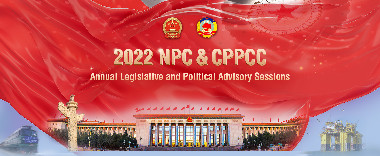CTG Pulls Counties Out of Poverty
Forty-eight poverty alleviation projects in four designated counties under China Three Gorges Corporation (CTG)'s 2020 plan were all underway by March 25.
A total of 400 million yuan ($56.4 million) had already been given to the projects.
According to CTG, the projects cover food and clothes supplies and compulsory education, basic medical care and safe housing guarantees as well as such industries as tourism, planting and breeding and e-commerce.
About 97.4 million yuan are for medical support which includes repletion of four CTG medical poverty alleviation funds and renovation and expansion of two county hospitals.
Valued at 146.83 million yuan, the education projects include construction of five schools, renovation and building of four other education facilities and two projects to improve teaching capacities.
Six tourism and four planting and breeding projects as well as e-commerce industrial support projects have received 80 million yuan.
Wang Lin, deputy secretary of the CTG Committee of the CPC, said that implementation of the projects will help regional economic growth recover from the COVID-19 pandemic and consolidate poverty alleviation gains, which will lay a foundation for rural revitalization.
CTG has run poverty alleviation projects in four counties – Wushan and Fengjie counties in Chongqing, Wan'an county in Jiangxi province and Baarin Left Banner in Inner Mongolia autonomous region – since 2002. Over the past 18 years, it dispatched 38 employees and invested 850 million yuan to 298 projects. With success, the four counties are now free of poverty.
To help economic recovery in the four counties, CTG purchased agriculture products valued at more than two million yuan.
In addition to the designated counties, the company also supports projects in the Tibet autonomous region, Xinjiang Uygur autonomous region and Qinghai province and offers helps to the ethnic minority people in Yunnan and Sichuan provinces and migrants in the hydropower reservoir areas.
So far, CTG has invested more than 8.35 billion yuan for poverty alleviation and initiated over 1,400 supportive projects, benefiting more than one million people.
(Executive editor: Wang Ruoting)



